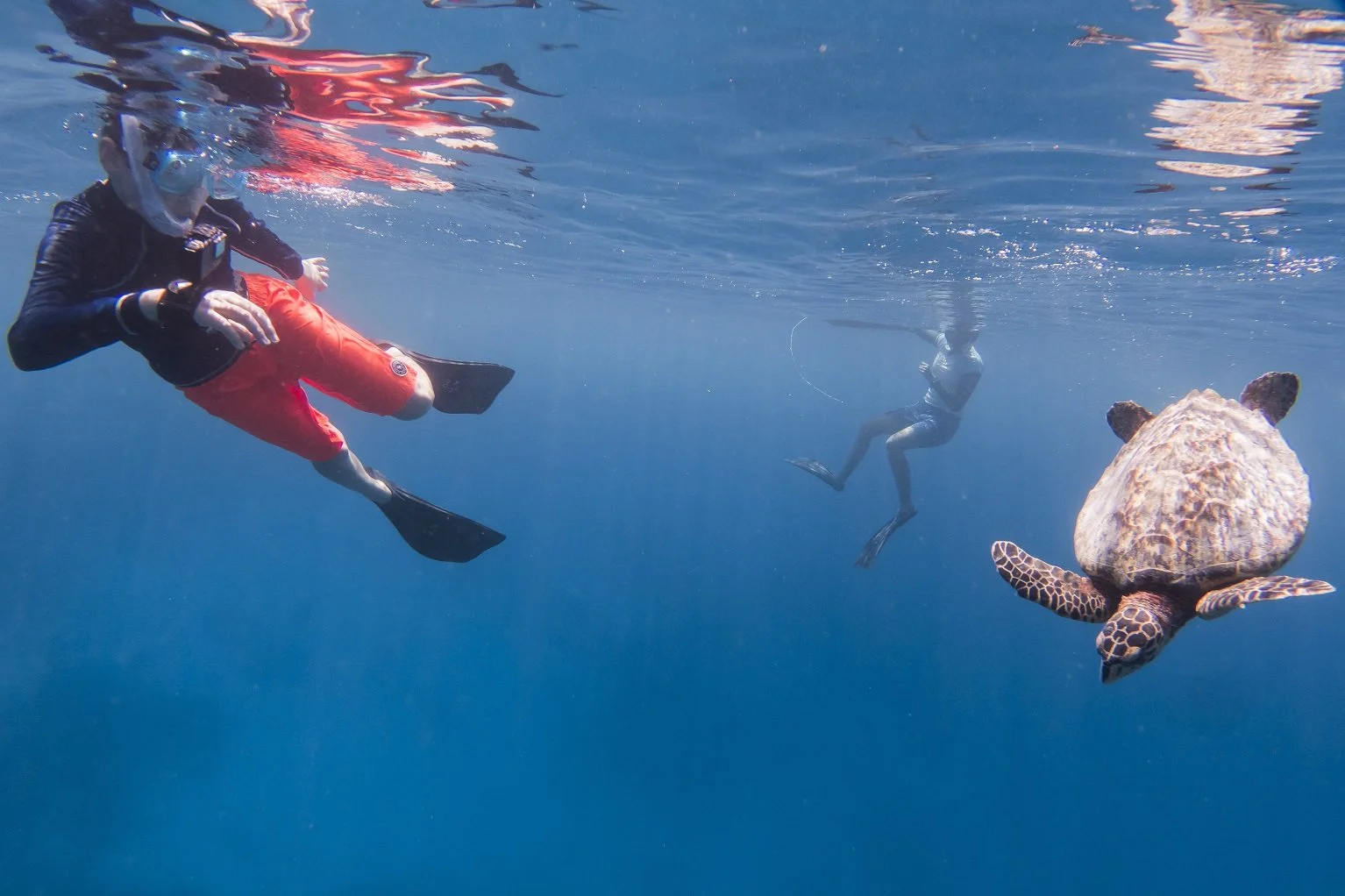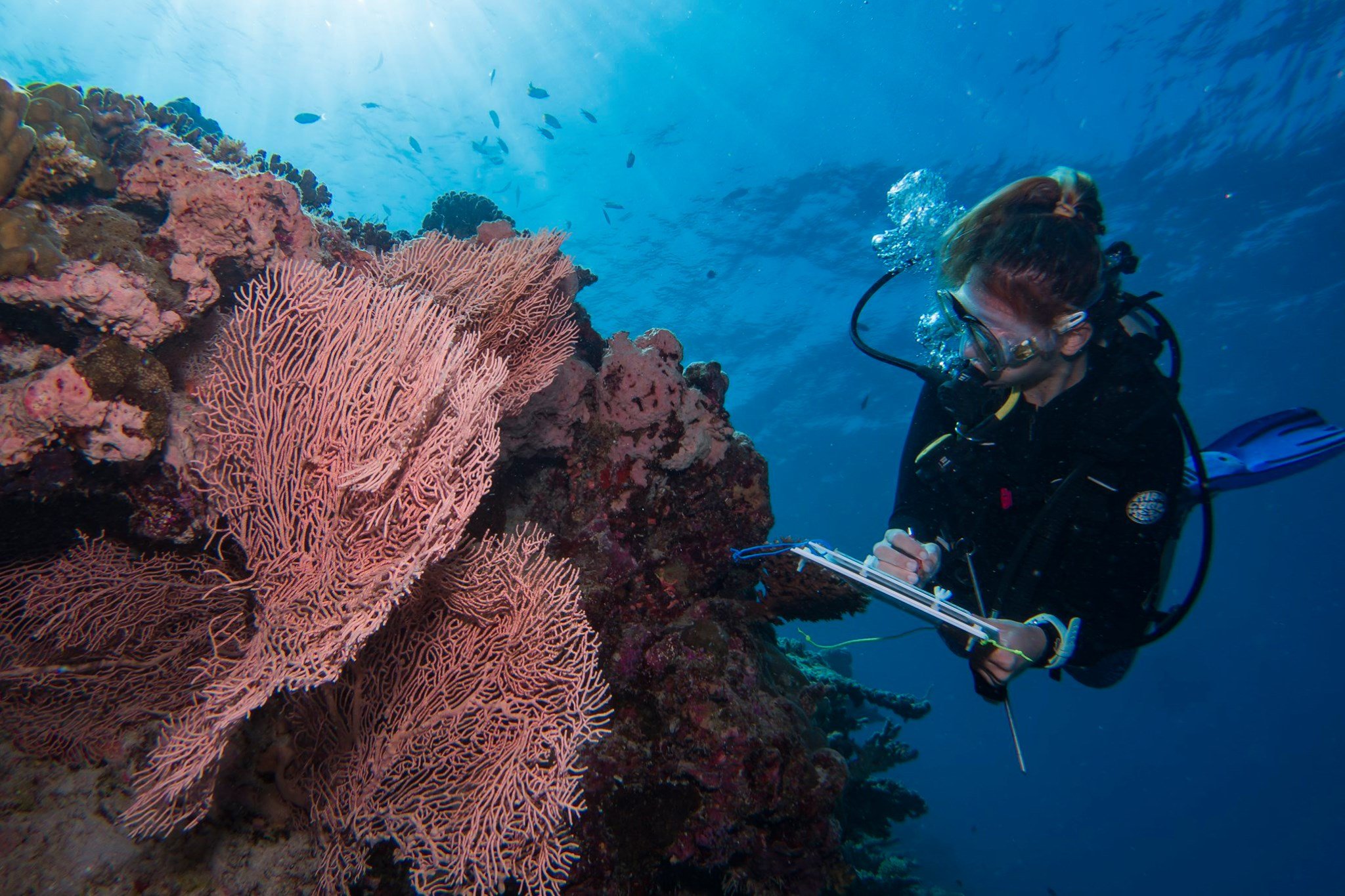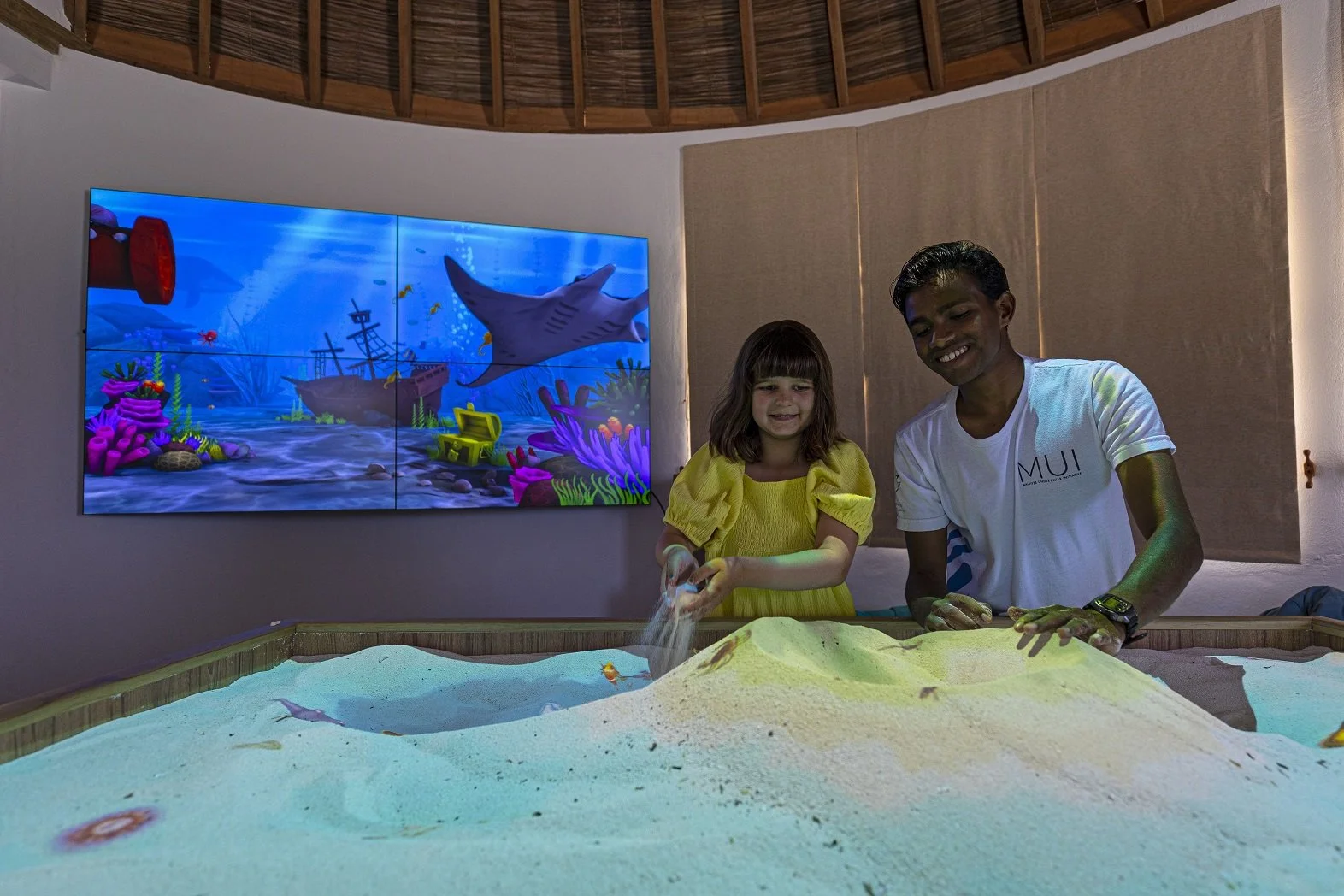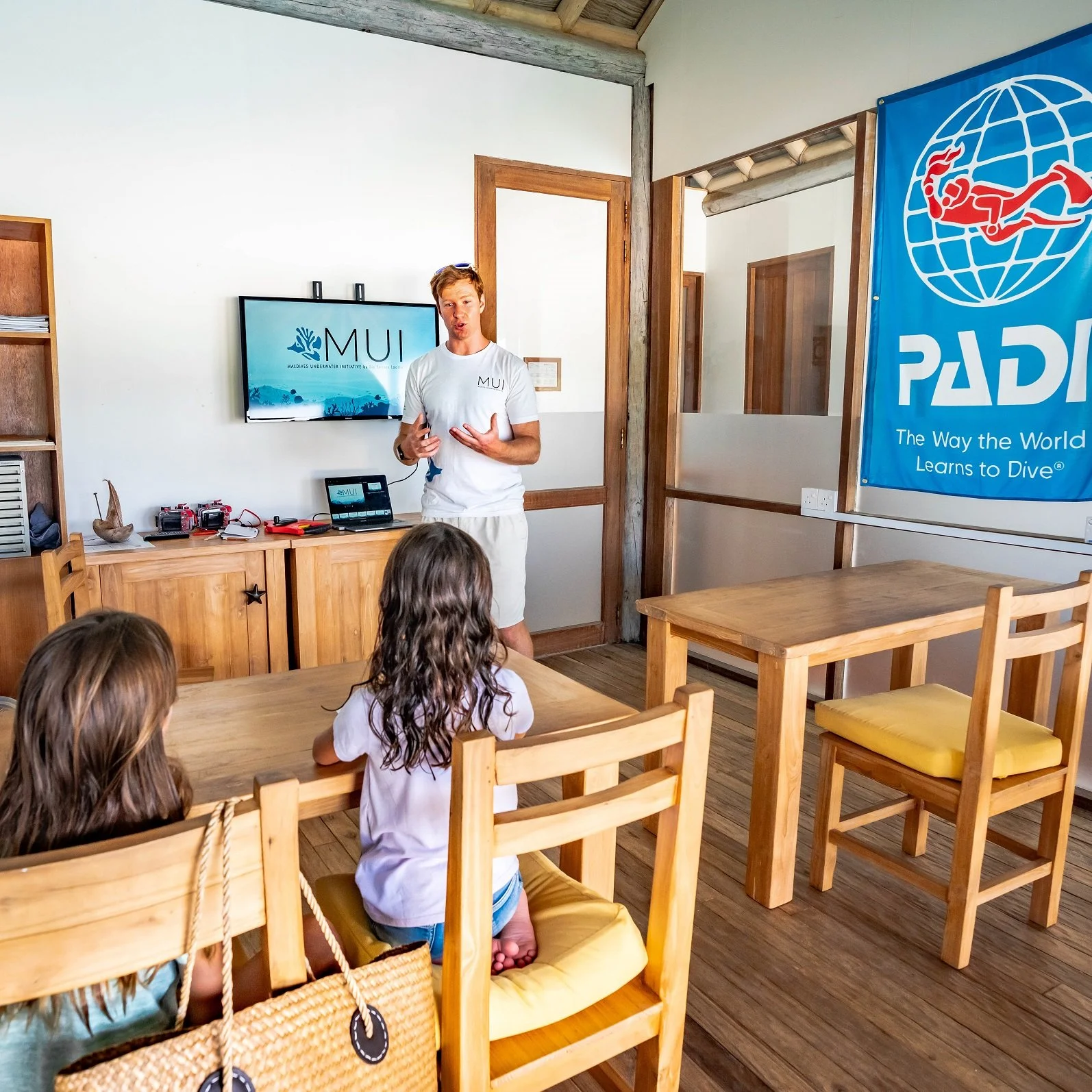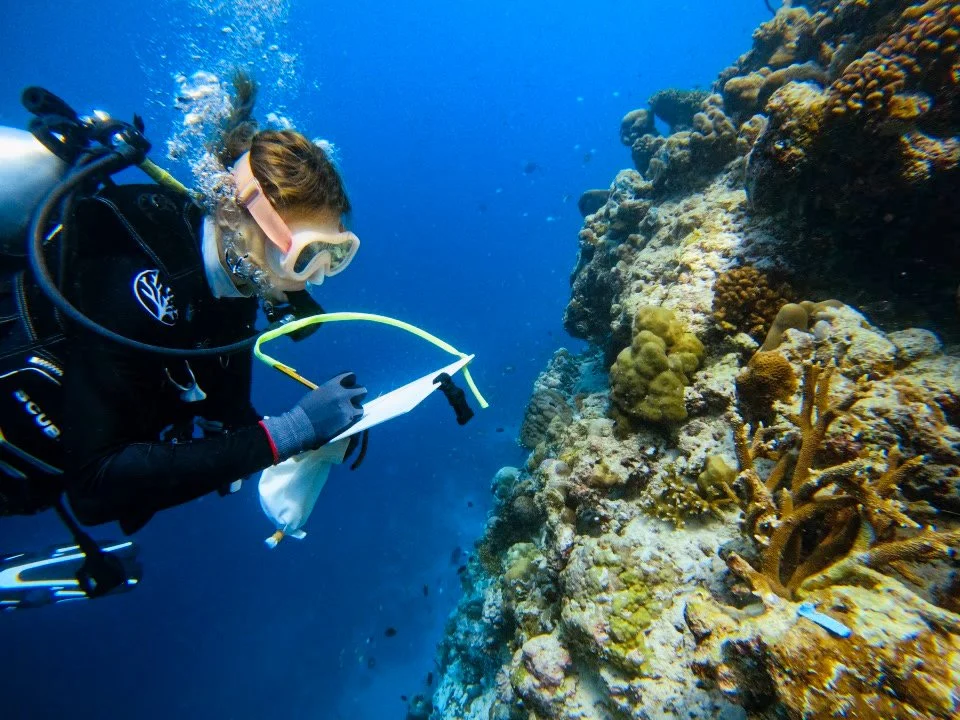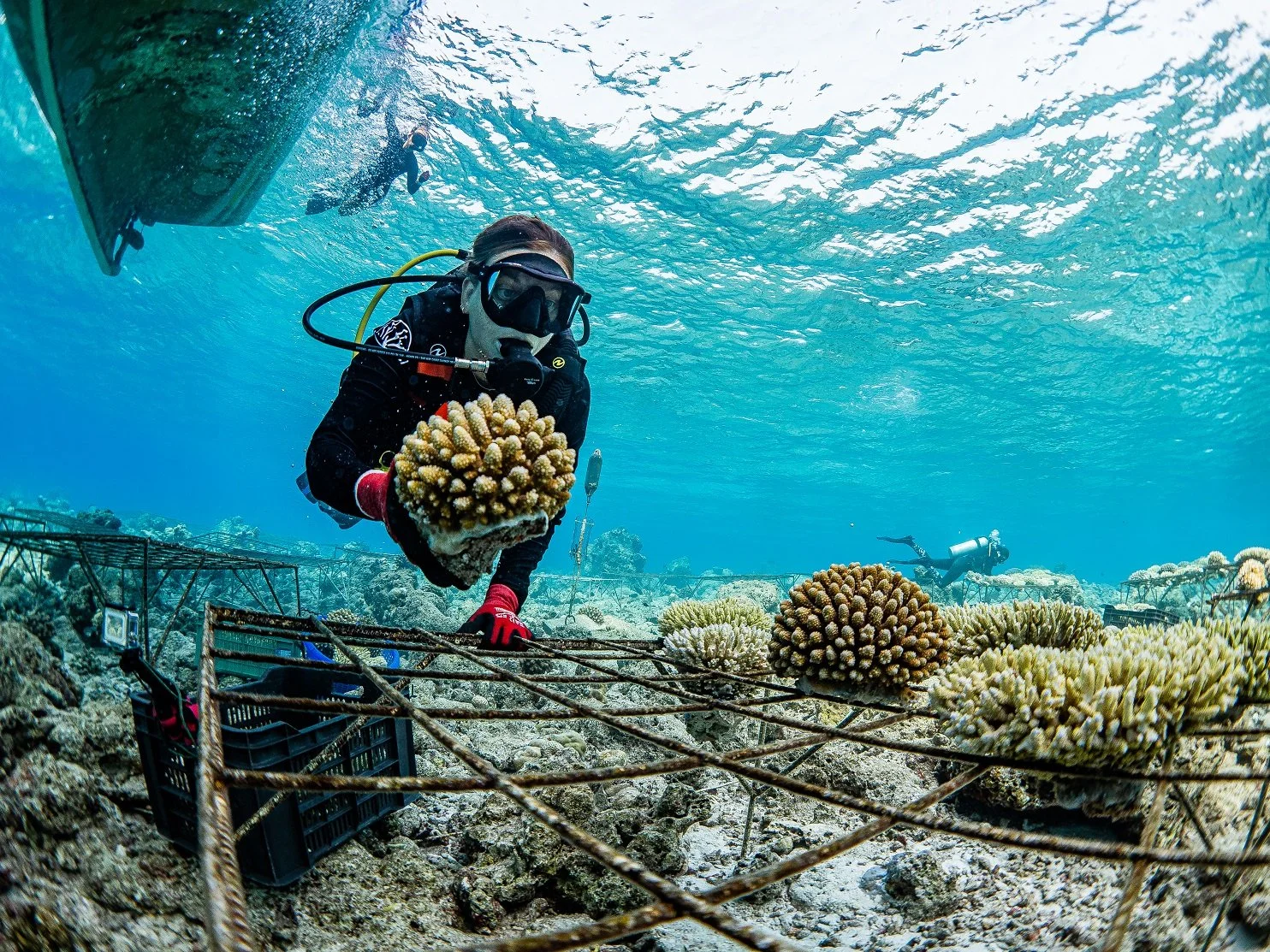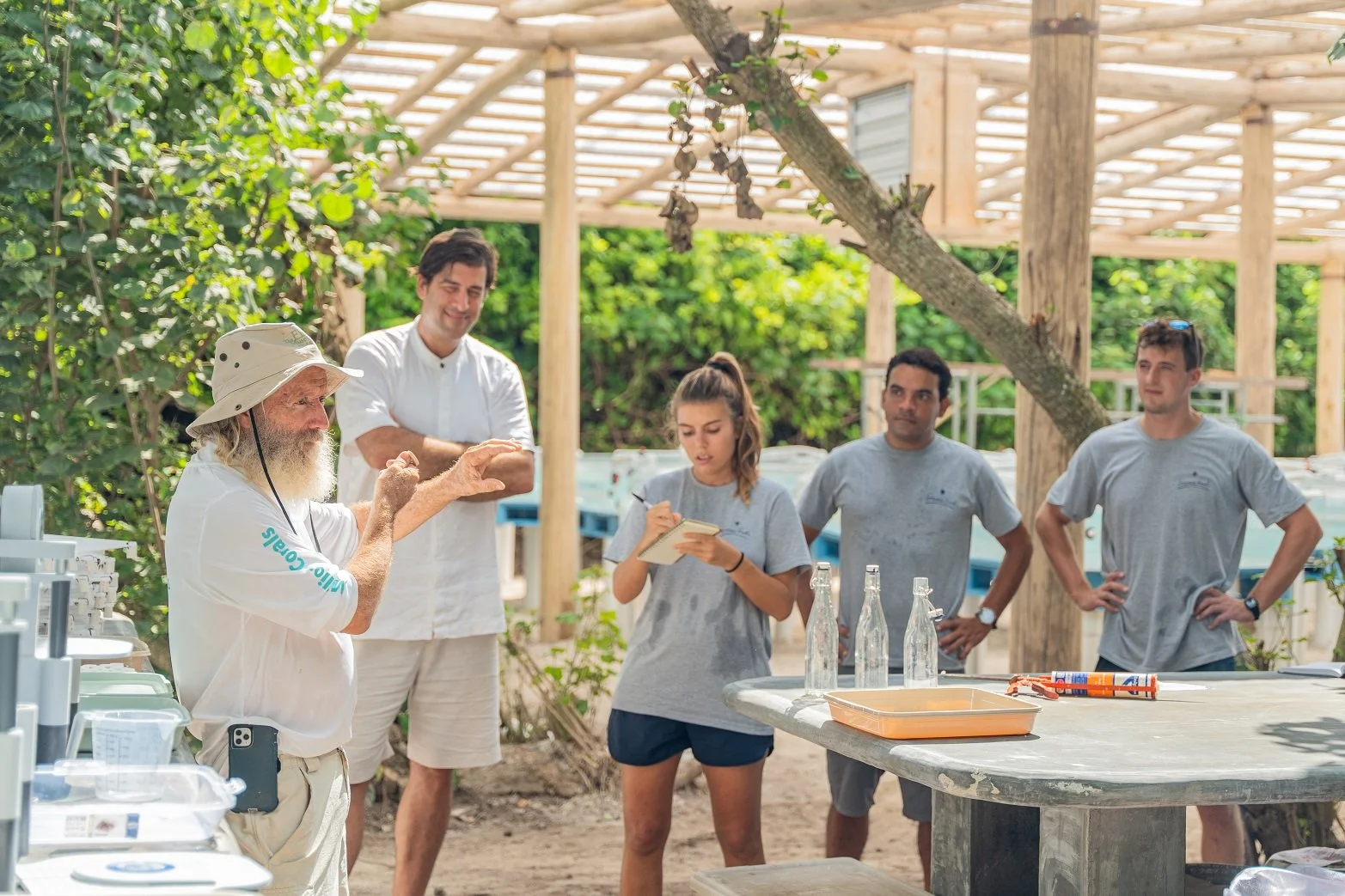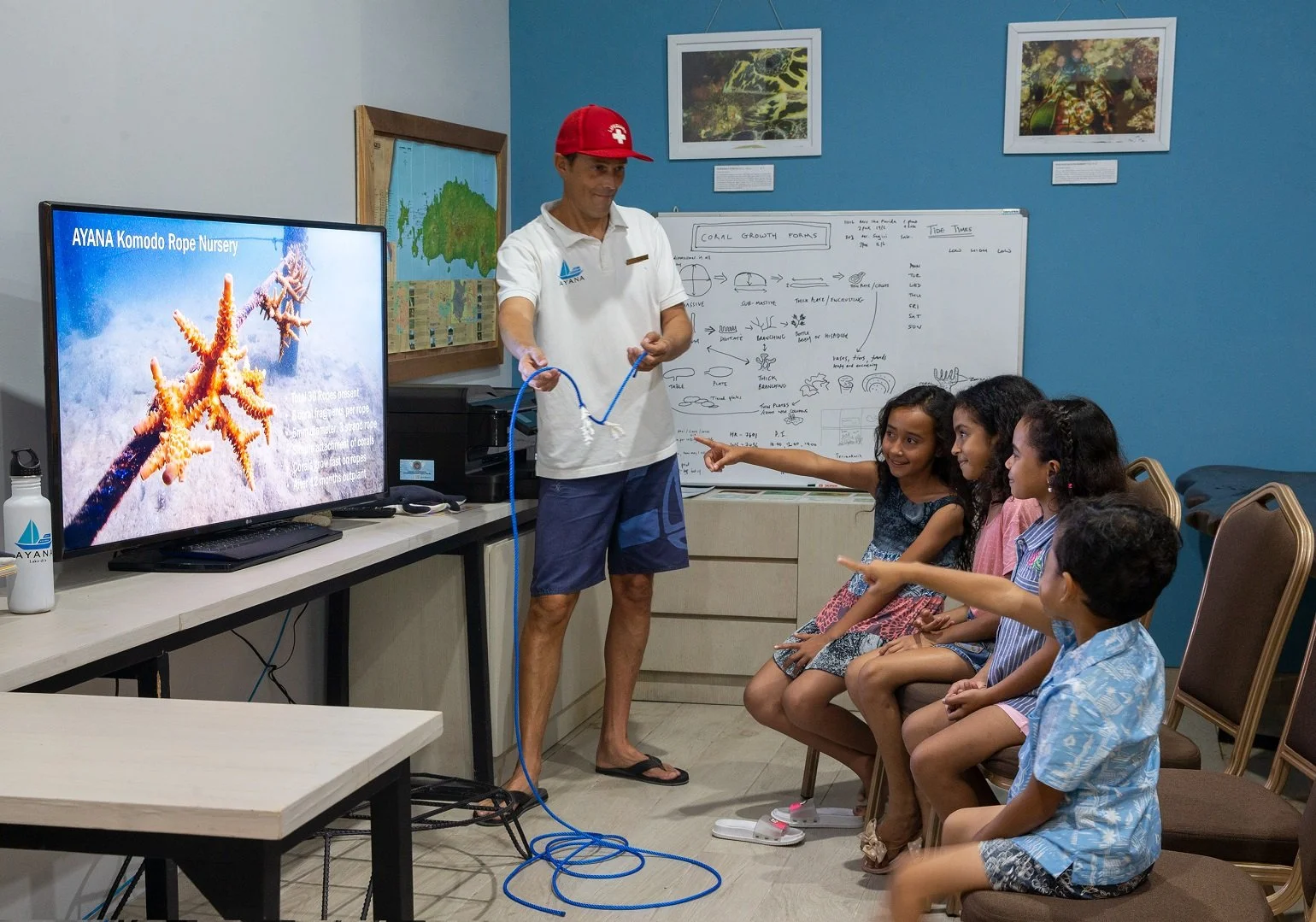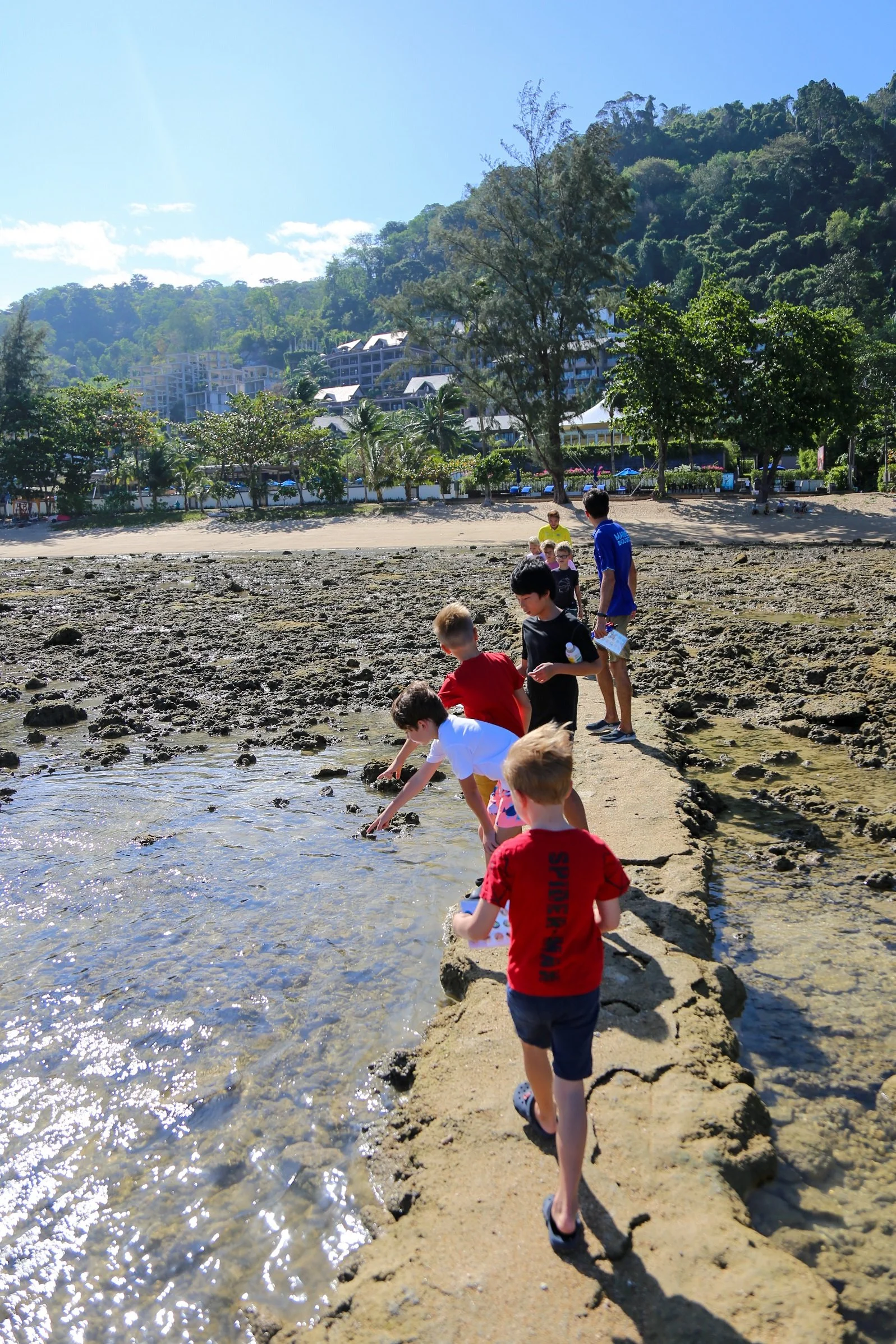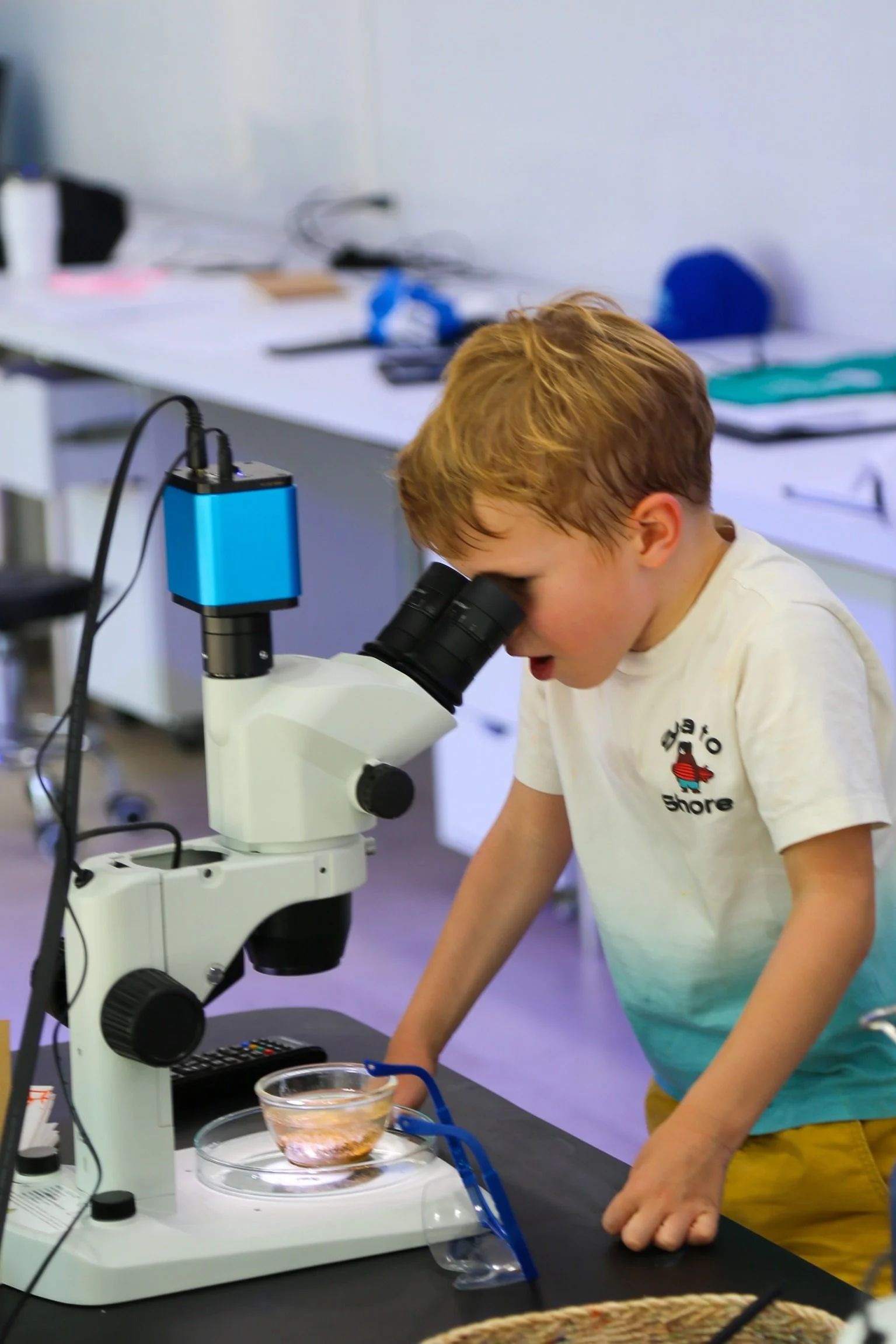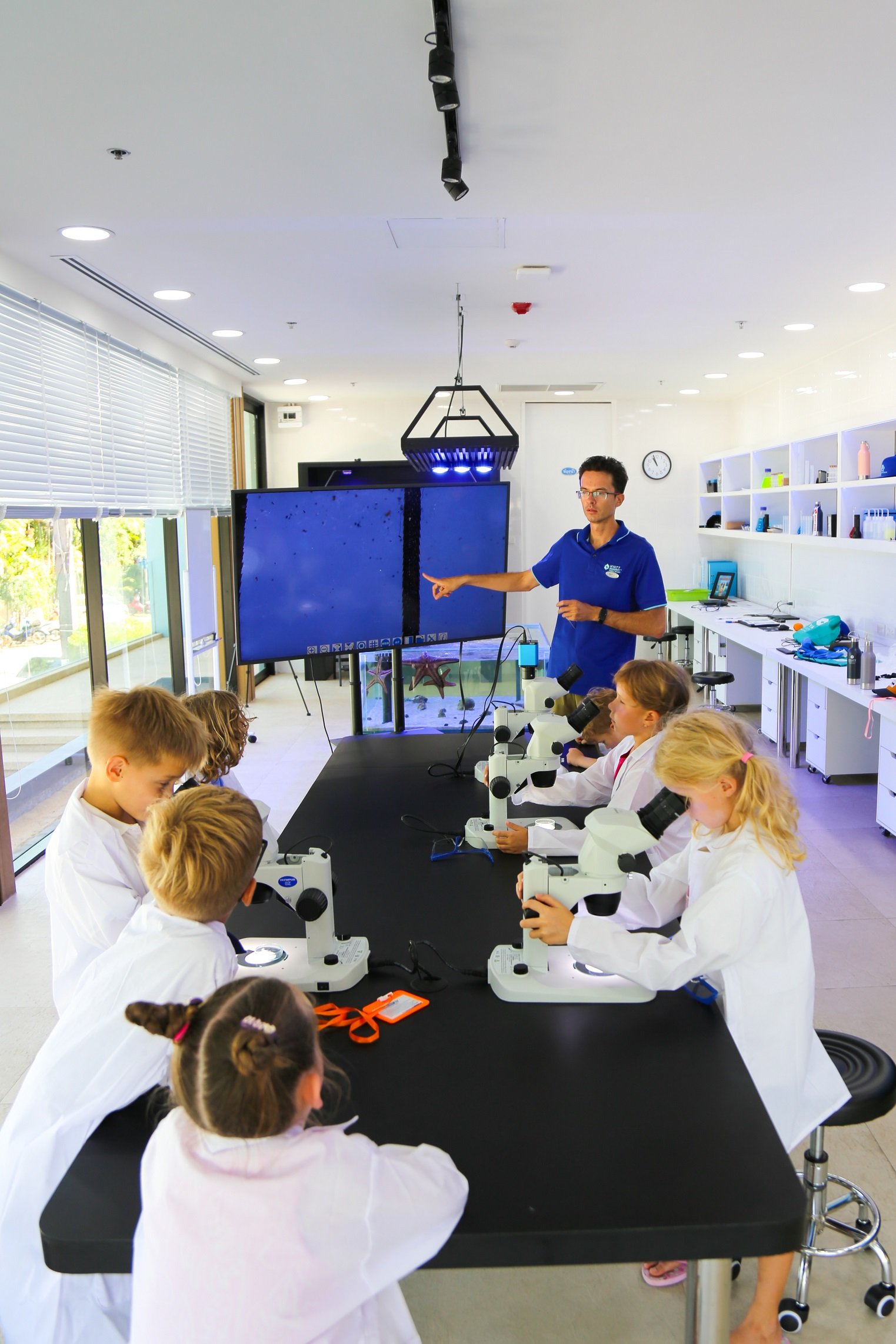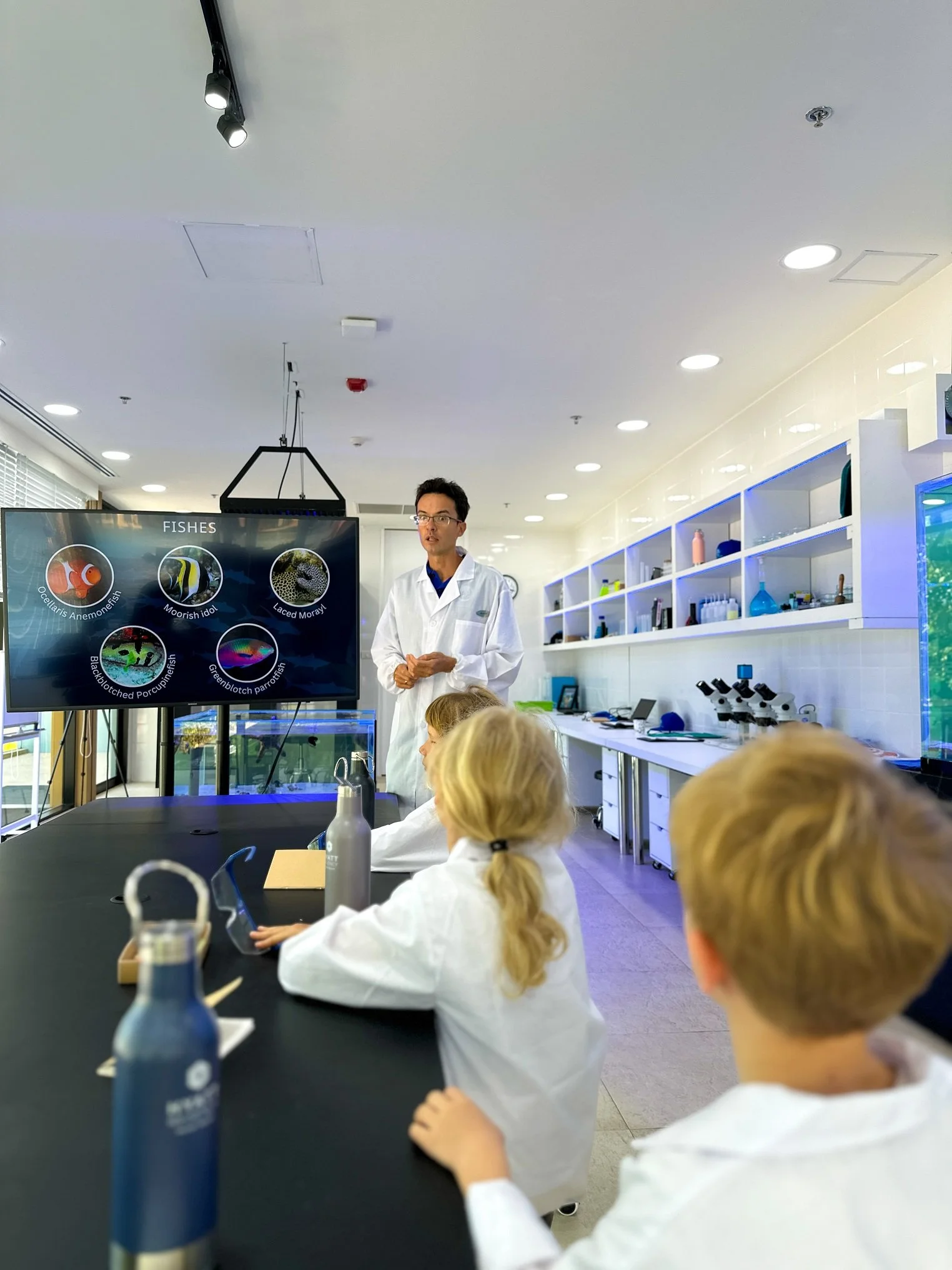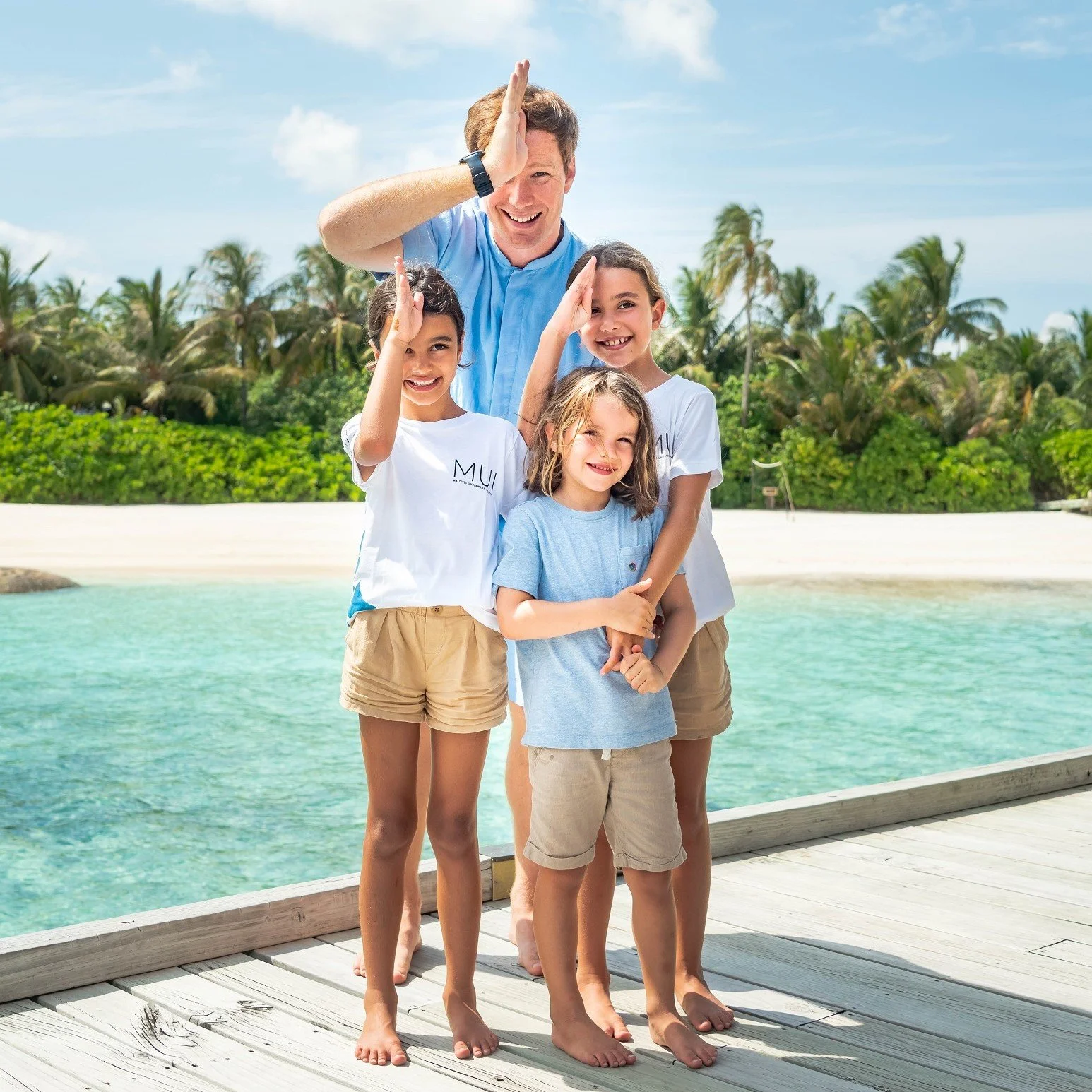Can Family Vacations Teach Children to Save Our Oceans?
Photo by: Six Senses Laamu Maldives
Our oceans cover over 70% of the planet's surface and house an estimated 80% of Earth's biodiversity, providing us with oxygen and food, regulating our climate, and supporting our economy.
However, this precious resource is in crisis due to human activities like overfishing, offshore drilling, pollution, and carbon emissions. These actions have led to the depletion of marine life, the destruction of coral reefs, and increased ocean acidification.
Recent estimates from the UN Educational, Scientific and Cultural Organization (UNESCO) indicate that more than half of the world's marine species could face extinction by 2100. With the current temperature increase of 1.1°C, approximately 60% of marine ecosystems worldwide have been degraded or used unsustainably. A temperature rise to 1.5°C is projected to threaten 70 to 90 percent of coral reefs, while a 2°C increase could result in nearly total coral loss, marking a critical threshold.
These alarming statistics highlight the pressing need for marine conservation efforts.
As adults, we have a responsibility to protect our oceans for future generations.
But what about instilling this mindset in our children at an early age?
Can family vacations help address this crisis by educating our younger generations?
The short answer is yes! Family vacations can be an excellent opportunity to teach children about the importance of preserving our oceans and how they can get involved in conservation efforts.
Teaching children about marine conservation isn't just beneficial—it's essential.
Kids who participate in environmental activities are more likely to adopt sustainable practices and advocate for ecological preservation throughout their lives.
Initiatives like youth-led conservation projects show how early involvement can empower young people to become proactive advocates for sustainable development.
I checked several resorts that offer a variety of immersive activities designed to educate and engage young minds, and I was pleasantly surprised by their comprehensive approach. These resorts include Six Senses Laamu, Soneva, Hyatt Regency Phuket, and AYANA Komodo Waecicu Beach.
Inspiring Marine Conservation Through Education
Junior Marine Biology Program Inspires Future Ocean Stewards
"Marine conservation is so much more than research or policy," emphasizes Lawrence Menz, Director of Sustainability and Conservation at Six Senses Laamu. "It is about engaging the hearts and minds of our guests and connecting them with our incredible underwater world."
This philosophy is embodied in the resort's Junior Marine Biology (JMB) program, which is part of the broader Grow With Six Senses program, the Maldives Underwater Initiative (MUI) by Six Senses Laamu.
Since 2019, the JMB program has played an important role in Six Senses Laamu's mission to engage children aged 6 to 12 in marine conservation. Guided by a resident marine biologist, kids learn about the Maldives' and Laamu Atoll's marine environment through hands-on workshops and activities.
The program is divided into five sessions, each offering both theoretical knowledge and practical experience. Topics cover the formation of the Maldives islands, marine conservation storytelling, and megafauna research.
During the theory sessions, children are introduced to the session's context. The practical component happens in nature, often involving a scientific research snorkel. Kids use dive slates to record data, which they later analyze. Both components are tailored to their ages, pre-existing knowledge, and abilities in the water.
To support deeper understanding, each junior marine biologist has a booklet for theory sessions where they write answers, record data, and reflect on each activity.
"There are even additional challenges to complete during their stay on the island and at home so they can continue to practice their skills even after they have departed Six Senses Laamu," says Menz.
Each activity yields different outcomes, but they all share two common aspects: learning and behavior outcomes. Learning outcomes center on grasping the scientific concepts presented, while behavior outcomes involve changes in thoughts or actions, such as reducing plastic use or opting for more sustainable fish in meals.
Photos by: Six Senses Laamu Maldives
Expert Involvement at the Heart of Junior Marine Biology
The JMB program was developed and run by the professional marine biologists at Six Senses Laamu's Maldives Underwater Initiative (MUI). This initiative is a collaboration between resort marine biologists and three partner NGOs: Manta Trust, Blue Marine Foundation, and Olive Ridley Project. With their combined expertise, participants enjoy a comprehensive and impactful educational experience.
The program, supervised by MUI's Guest Education Coordinator, features specialized sessions delivered by the relevant NGO partners. MUI has 10 marine biologists with six areas of specialty research, enriching the JMB program.
Left photo: Junior Marine Biology participants at the house reef with Greg Holder, Base Leader for Maldives Underwater Initiative;
Right photo: Classroom session with Greg Holder (Photos by: Six Senses Laamu Maldives)
Comprehensive Courses for Young Ocean Enthusiasts
The Soneva Academy offers marine biology courses to engage and educate children and young adults about the ocean. Courses like Introduction to Marine Biology, Advanced Marine Biology, and Advanced Coral Restoration combine classroom learning with practical fieldwork and can be tailored to guests' interests.
The introductory program helps young children develop a love for the ocean and discover life underwater. Children learn to observe and identify marine creatures, understand their behaviors related to feeding, playing, and hiding from predators, and develop compassion for these creatures they do not see daily.
"It is important to build these connections with younger children to have them want to explore the ocean and nature further, and for this ecosystem not to be thought of as a scary place, but a place filled with wonder and excitement, teeming with life, just like a forest or their backyard," says Johanna Leonhardt, Manager of the Soneva Coral Project/Aquaterra.
The advanced program is for young adults interested in learning more about their snorkeling, diving, and swimming spots. They focus on marine conservation by recording marine life, identifying fish species, and observing behaviors like feeding, courtship, and hunting.
Participants also learn scientific data collection methods and use tools like the Coral Watch chart to assess coral health. The course highlights the importance of accurate data collection in conservation efforts.
The advanced coral program teaches guests tertiary-grade data collection techniques as amateur field scientists. They learn to identify coral types and health parameters and recognize signs of predation, disease, and bleaching. Participants also learn conservation steps to protect unhealthy corals.
"This gives them a slice of what it would be like to study marine biology at a university level and unlocks their passion for coral reef restoration and ecology," says Leonhardt.
Left photo: Outplant Monitoring; Right photo: Coral propagation (Photos by: Soneva)
Expertise at the Core of Coral Restoration and Marine Education
"The Soneva Foundation Coral Restoration program is a registered NGO under the Soneva Foundation, and all team members have postgraduate degrees in coral reef ecology, conservation, or marine biology," shares Leonhardt.
To further enhance and strengthen its conservation efforts, Soneva collaborates with a range of partners. These include Plant a Million Corals FL, Coral Spawning Lab UK, Aquarium Connections UK, and renowned academic institutions such as the University of Bristol, University of Bremen, University of Miami, and McGill University. Partnerships with the National Research Council Canada, Maldivian Ocean Alliance, and Maldives Marine Research Institute add scientific rigor and local insight to their projects.
Left photo: Coral cutting training with coral expert Dr. David Vaughan; Right photo: The Soneva Foundation establishes the Maldives’ first coral spawning and rearing lab at Soneva Fushi (Photos by Soneva)
Engaging Families in Coral Conservation
Held three times a week at the Marine Discovery Center, launched as part of AYANA Cares during the resort's opening in September 2018, AYANA Komodo Waecicu Beach's Coral Planting Program allows guests to participate in the hands-on conservation of coral reefs.
Led by Lee Miles, the in-house marine biologist, guests of all ages can learn about corals, reefs, and marine life right off the resort's beach. The experience includes planting a coral fragment on a rope at the jetty, which is then placed in one of the coral nurseries.
The activities are inclusive of the local community. On March 16, 2023, AYANA welcomed 50 children from a nearby village to join the Marine Life Workshop and coral planting program, promoting environmental education and community engagement.
"The children of Labuan Bajo and the surrounding areas can become the next generation of environmental ambassadors and champions. Given that the coral reefs around Flores island are some of the richest in the world, it is essential that AYANA plays its part in educating them," says Miles.
Photos by: AYANA Komodo Waecicu Beach
Exploring the Ocean Beyond Courses
In addition to their coral conservation activities, AYANA also offers snorkeling and diving trips for guests to explore coral reefs and marine life.
Families can enjoy a glass-bottom boat tour aboard the AYANA Lako Taka, which offers a view of the underwater world.
The tour includes exploring the picturesque Bidadari Island, where guests can see turtles, colorful reefs, and various fish species.
A marine biologist accompanies each tour, providing insights about the vibrant marine life and coral formations. The biologist also conducts engaging, child-friendly activities to enhance the educational experience for young guests.
Empowering Young Minds Through Marine Conservation Workshops
At the Marine Biological Center (MBC) of Hyatt Regency Phuket Resort, engaging marine conservation workshops offer an educational experience in marine biology. These workshops cater to both children and adults and feature interactive sessions led by resident marine biologist Marat Khaidarov. Activities include guided snorkeling tours, hands-on experiences with jellyfish, mangroves, touch pools, sea urchins, and clownfish tanks, and discussions on marine conservation.
"Our goal is to make marine conservation accessible and exciting for everyone," says Khaidarov. "By using real-life examples and hands-on experiments, we ensure that participants are actively involved in learning about marine ecosystems and the importance of their conservation."
Among the notable initiatives is the Reef Guardians Camp, held during school holidays for children aged 7-12. This week-long adventure aims to inspire future marine conservationists with activities like Marine Life Discovery classes, beach cleanups, jellyfish feeding, and marine-themed arts and crafts.
"The Reef Guardians Camp is structured to be both fun and informative," Khaidarov explains. "We incorporate game-based learning and problem-solving activities to foster a love for marine life and promote environmental stewardship."
Guided by marine biology and hospitality experts, the camp offers a unique mix of learning and discovery.
"We focus on experiential learning where children can see, touch, and interact directly with marine life, solidifying their understanding through personal experience. This hands-on approach helps cement knowledge and appreciation for marine conservation in a way theoretical learning cannot," says Khaidarov.
Photos by: Hyatt Regency Phuket Resort
Expert Involvement: Adding Depth and Authenticity
The MBC collaborates with various experts and local NGOs to enrich its workshops. Headed by Khaidarov, a marine biologist with over a decade of experience, the program benefits from his extensive knowledge and passion for marine life.
"Our partnerships with conservation groups like Oceans For All and Phuket Has Been Good To Us ensure that our workshops reflect the latest in conservation science and practices," Khaidarov notes. These collaborations provide a comprehensive educational experience that is both accurate and deeply impactful.
Photos by: Hyatt Regency Phuket Resort
Guest Experiences: Inspiring Stories and Lasting Impressions
Over the past five years, the Junior Marine Biology program at Six Senses Laamu has seen many dedicated children return annually. Many parents have shared with the team how the program has impacted their children's attitudes and behaviors toward conservation and the ocean.
Numerous young attendees have expressed new aspirations to become marine biologists, inspired by their experiences in the JMB program. One student was so enthusiastic that she persuaded her family to cancel other travel plans and return to Six Senses Laamu to continue her journey. Many students have even taken their newfound knowledge back to their schools, delivering presentations on shark conservation and marine research.
Young guests graduating from the JMB program, with Maldives Underwater Initiative’s Base Leader Greg Holder (Photo by: Six Senses Laamu Maldives)
A student from Soneva Academy's Advanced Coral Course now plans to pursue marine biology as a career. His mother shared, "My son said his favorite part of our Maldives trip was the course with you. He's now keen to study marine biology at university, so he'll need to take biology (and another science) at A level."
This feedback highlights how the course can spark serious academic and career ambitions, revealing the program's potential to shape future marine conservationists.
"All of our guests who experience a Soneva Academy course usually have lots of smiles and praise after the course—they are proud of what they have achieved (they receive a certificate of completion) and walk away with more confidence, knowledge, and love of the natural environment. Usually, it's a highlight for them and their parents, as the parents tell us that they learn something from their children explaining the course to them afterward," shares Leonhardt.
Feedback from families and children who have attended the workshops at Hyatt Regency Phuket has been positive. Many now have a newfound appreciation for marine life and conservation.
Memorable stories include children starting their own mini-conservation projects and families adopting more eco-friendly practices. One touching story involves a child inspired by the World Ocean Day event on June 8 to start a beach cleanup in their community.
"Such stories highlight the impact of our educational efforts and the deep understanding of marine conservation that participants take away," shares Khaidarov.
TL; DR
The hospitality industry has a unique capability to educate, inspire, and shape the environmental consciousness of young guests.
Integrating marine conservation education into family vacations isn't just an additional offering; it's a strategic approach to develop young ocean advocates who are ready and willing to protect our seas. Well-designed programs like these not only make the vacations more enriching but also instill a sense of responsibility and urgency in caring for the environment.
Collaborating with subject-matter experts, NGOs, and private organizations enhances the depth and comprehensiveness of the educational experience.
The impact of marine conservation workshops goes well beyond the classroom or resort. Guests gain valuable knowledge and a deeper appreciation for marine ecosystems, which they often share within their friends and family and incorporate preservation mindset into their daily lives.


